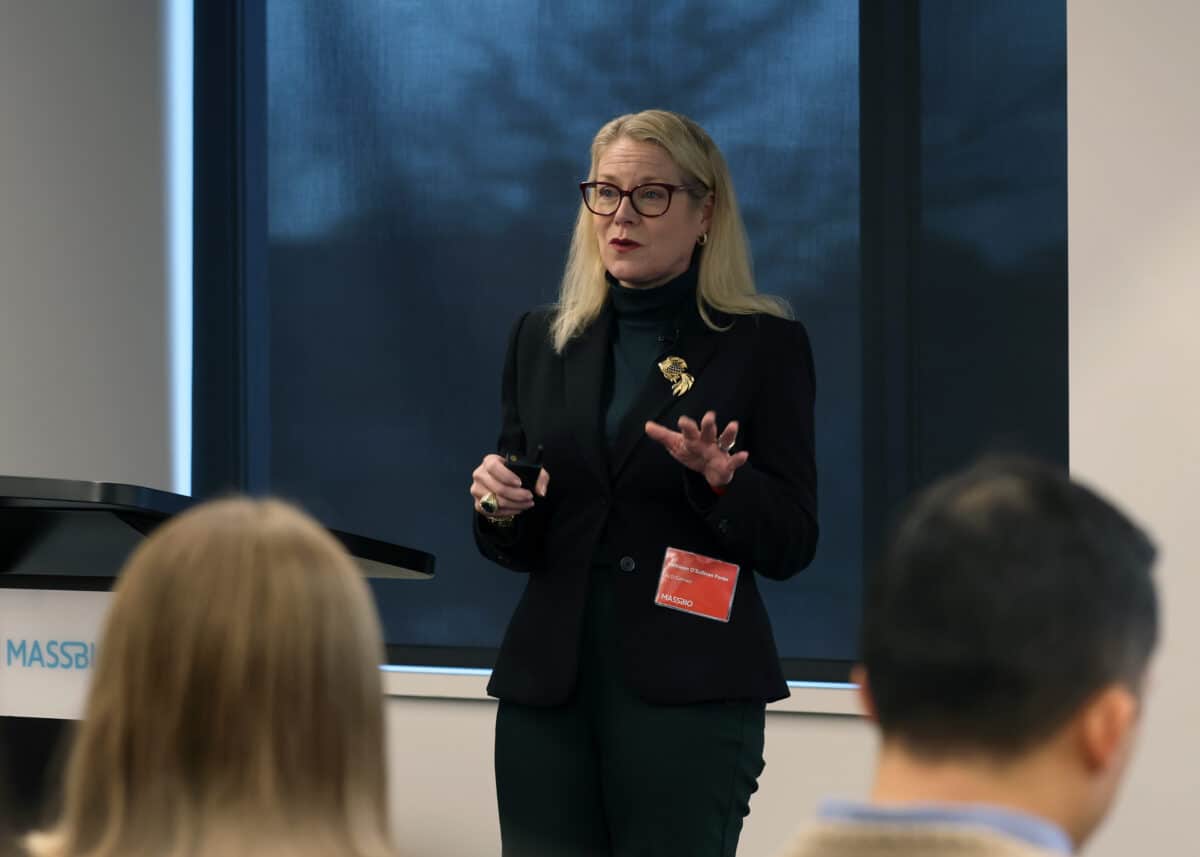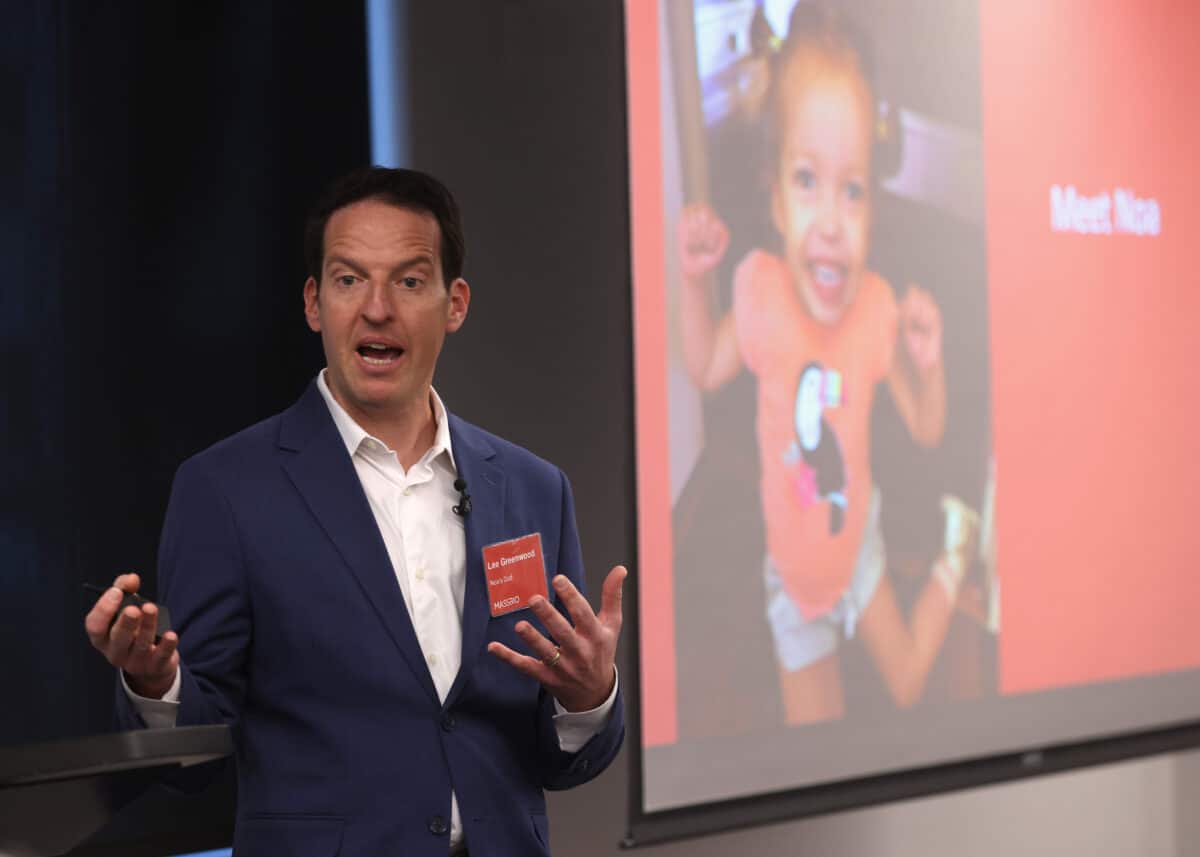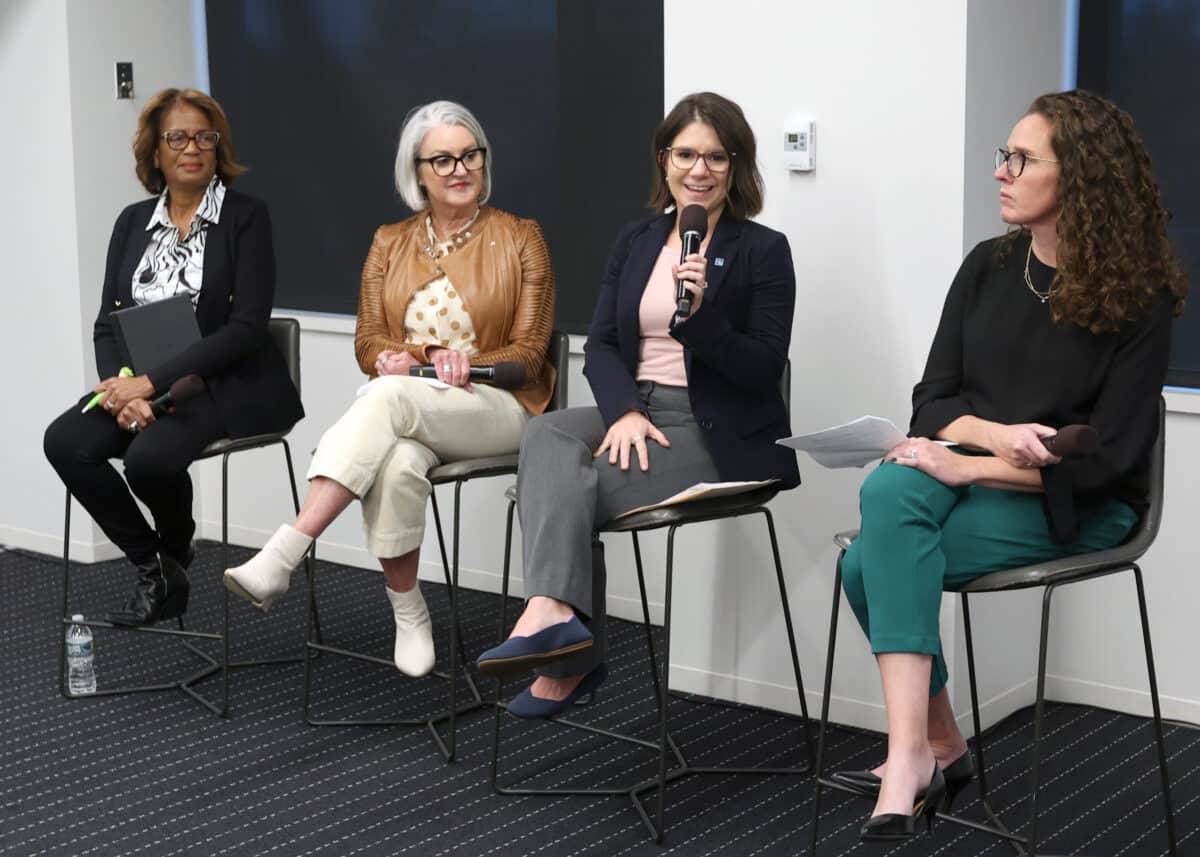
A decade after MassBio convened its first summit specifically focusing on issues surrounding patient advocacy, an impressive group of advocates, biopharma leaders and executives gathered at the organization’s Kendall Square hub for a day of panels, keynotes and networking. In the time since that first summit, efforts around patient advocacy have evolved and grown, but the work of keeping patients at the forefront of the drug development cycle remains a key mission of the summit and those who participated in it this year.
“Everything MassBio does, everything our industry does, is because of patients,” said MassBio CEO & President Kendalle Burlin O’Connell in her welcome remarks last Thursday morning. O’Connell touched on significant initiatives and investments in Massachusetts, such as the establishment of the ARPA-H investor catalyst hub in Cambridge, to illustrate that the state is looked to as a national leader. With that, she said, comes a commitment to improving lives for patients.
“I speak with so many peers in other states that wish they had what we have,” she said. “So we have big responsibilities on our shoulders…we have to bring solutions to the table and make sure it’s all driven around patients.”
Among panels that touched on everything from federal policies to FDA regulations to health equity, the stories from advocates and their families were those that had the most emotional impact, starting right from the top with Kathleen O’Sullivan Fortin.
In a powerful opening keynote address, O’Sullivan Fortin, co-founder of ALD Connect, shared her journey from advocating for her son John – who was diagnosed with adrenal insufficiency and adrenoleukodystrophy (ALD) – to advocating for all who are diagnosed with the disease.
Fortin spoke to the challenges and unique role advocates can play in everything from drug development to disease awareness to meeting with medical professionals and regulators. When she first became involved in advocacy work, she walked into a meeting with distinguished doctors and was told to make herself a name tag. “My only expertise was, ‘John’s mom,’” she said. So she wrote that on her name tag. “I had tremendous hesitation thinking, ‘I don’t belong here, I don’t deserve a seat here,’” she said.
But over time, she found that role of being John’s mom held incredible power, showing various stakeholders the real people impacted by their decision making. During her keynote, she encouraged other advocates not to be afraid to take that first step and to lean into who they are and their skillsets.
“I’m John’s mom. I’m a talker,” Fortin said, enumerating the ways she can effect change. “I’m not shy. I’m a lawyer, which is usually something I politely flex at people who are not going to give me my way,” she said to laughs from the crowd.
Since starting ALD Connect in 2013, Fortin has used all of those skills to help connect with others in her disease community, organizing the community around various advocacy efforts and pulling in influential friends and professionals across the healthcare community.

Following a networking lunch, patient advocate and Boston resident Lee Greenwood gave a “Possible Talk” about advocating for his daughter Noa, who has Canavan disease, a progressive genetic disorder affecting the central nervous system. Early symptoms include weakness, low muscle tone and loss of head control in infants. The news shattered Lee and his wife. But on the same day that she was diagnosed a new clinical trial for the disease was posted on clinicaltrials.gov.
Noa was one of the first children to receive an investigational gene therapy developed in Massachusetts. Greenwood recounted her meeting with some of the top Canavan researchers at UMass’ Chan Medical School nearly a year after she was dosed at Mass General Hospital (MGH).
Noa’s story encapsulates why Massachusetts’ “State of Possible” story, connecting the innovative research, trials and treatments developed in the Commonwealth to the real people they impact. The investigative gene therapy research for Canavan was led by Dr. Guangping Gao, Ph.D. and Dr. Dominic J. Gessler, Ph.D. at UMass Chan and the principal investigator of the trial is neurologist, Dr. Florian Eichler, at MGH.
“It’s really important I think to show researchers what they’re working for,” Greenwood said. “I want you to know when you are doing your thing, please remember that there is a human being, there are people, there are families, there are communities that rely on you and [Noa] is the face of that and she is real. She has a disease, but she is a person and she deserves everything that everyone else deserves.”
Today, after about a year and half post gene-therapy, Noa, who is now three years old, is improving. She’s able to play with her parents and big sister, feed herself and attend Boston Public Schools. She even walks with a walker (or a parent’s hand), which lets her explore her favorite places— art museums and the science museum. These are huge tangible changes Lee and his wife have witnessed in their daughter, though they are both quick to point out the therapy is investigational and Noa’s future uncertain.
An afternoon panel on keeping patient advocacy front and center focused on why advocacy is one of the things that can be cut out of an organization’s budget when funding is down, in part because executives don’t fully grasp the range of benefits advocacy can have. The panel – made up of Argenx VP and head of Global Advocacy & Policy Katherine Perez, GBS CIDP Foundation International Associate Director of Research & Advocacy Chelsey Fix, Argenx Associate Director of US Patient Marketing Lindsay Tatnall, and nCeptive Owner and Massachusetts Rare Disease Advisory Council member Glenda Thomas – provided advice for advocates to defend their departments during corporate realignments and how to secure external funding.

“We are trying to make sure the caregivers and the families have their voice heard not just in the clinical phase but all the way through to finding and getting a treatment,” said Perez.
For the panelists, keeping patients front and center means building a company culture that understands the hopes, fears and concerns of patients, one person at a time.
“Who we’re hiring as an organization matters,” said Tatnall. “Do they have that intangible really. You can’t teach that empathy…Who you’re bringing into an organization to deal with patients, to hear from patients. That’s how we show the value of hearing their story.”
In time, advocates say their trepidation about speaking up as “just” someone’s mom or dad gave way to a confidence that advocates belong wherever decisions about their loved one’s health are being discussed.
“Everyone deserves a seat at the table,” Fortin said. “There is no discussion about rare disease we don’t belong in.”
And when it comes to those tables where patient outcomes are being discussed, she implored other advocates to elbow their way in.
“Someone may forget to add your chair,” she said. “But bring your own nametag and just show up.”